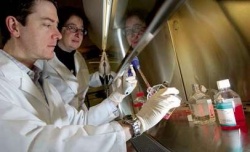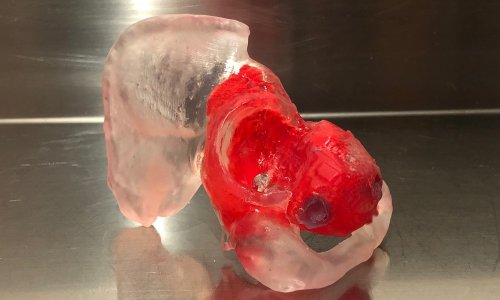The increasing importance of clinical lab scientists
Clinical laboratory scientists, the medical technologists of the 21st century, are not only enjoying a rapidly expanding role in clinical work but are also increasingly undertaking non-clinical duties such as consultation, quality assurance, laboratory management, professional advocacy and education.

It is because rapid access to test results is so crucial for diagnosis, treatment decisions and patient care that clinical laboratories have been in the forefront of computerised healthcare. Bringing laboratory information online was accomplished decades ago, but today’s advances in information technology and internet-driven processes are truly transforming laboratory medicine.
New technologies and, with them, new skills are of crucial and mounting importance for lab scientists. Modern lab information systems, which can follow specimens from acquisition to final report distribution, with test status updated at every stage, also manage business functions, workload balancing, staff scheduling, cost and revenue reporting and efficiency analysis.
In fully automated laboratories, information systems can direct robotic transport and instruments which complete tests from start to finish. Robotics are increasingly used for such repetitive tasks as specimen transport and processing. More specimens are being processed entirely without human intervention. Lab scientists are thus freed up to focus on unusual results and problems appropriate for individual attention.
The potential clinical utility of molecular diagnostics is expanding exponentially, with new tests constantly coming on stream. The advent of screening for genetic predisposition for a range of life-threatening diseases opens the prospect of nationwide screening of populations at risk.
Steadily improving biosensor technology and miniaturisation is allowing many substances and chemical constituents that are determined by analytical procedures to be tested at or near the patient. Computerised image analysis is changing, or even eliminating, manual clinical microscopy in urinalysis, haematology, immunohistochemistry and cytology.
Telepathology is linking smaller centres with expert consultants in tertiary centres. Advanced databases enable clinical labs to measure performance effectiveness and clinical outcomes.
All this, and more, puts laboratory scientists at the forefront of outcomes research. It is for these and many allied reasons that they will undertake an increasing range of extra-clinical and non-clinical roles.
They will consult or advise in all practice settings by correlating laboratory data and patient status. They will provide in-laboratory interpretation of admission laboratory tests and order follow-up tests.
To enhance clinical care, clinical lab scientists will develop ordering pathways and reflex testing algorithms. They will apply their expertise to the development of doctor-driven clinical pathways. They will contribute to triage protocols.
Indeed, they will be equal partners on healthcare teams in the formation of rules, alerts, order sets and algorithms, advising and assisting clinicians, nurses, pharmacists and others.
They will have a key role, too, as patient advocates - explaining patients’ conditions, medication and laboratory tests, helping interpreting laboratory results for families and supporting them in making difficult decisions about disease management.
Lab scientists will sit on medical practice committees, serve as infection control coordinators, provide expert testimony in legal situations and contribute to risk management.
When it comes to quality assurance, medical technologists will help raise and maintain standards of care by expert, beady-eyed reviewing of records for effectiveness and for compliance with clinical guidelines. They will be responsible for quality plans in laboratories and other healthcare institutions, striving to maximise quality and efficiency by fully meeting clinical needs, by improving workflow, by assessing processes.
They will have a key role in laboratory management. They will scrutinise the clinical and administrative needs of their labs and of medical staff to assess testing in their facility and, with appropriate colleagues, will develop test menus, reference ranges and patient information.
They will compare, select and implement new instruments and testing, prepare and manage departmental budgets, forecast trends and technological growth in clinical lab practice, control lab scheduling, plan for efficient use of available space utilisation and lead laboratory or facility design projects.
In addition, clinical lab scientists will oversee all clinic operations, including personnel and health and safety. They will work to maintain employee competence, will evaluate laboratory methods and productivity as well as patient outcome measures and other investigative procedures. And, of course, they will lead and manage the lab’s information systems.
Professional advocacy will require laboratory scientists to work with hospital administrations to promote their professions and to spearhead publicity about their work. They will conduct and oversee research to advance their field and play a full part in policy making, product review and compliance.
On the educational side, laboratory scientists will provide information on service charges, key performance standards and day-to-day resolution of problems. They will teach and train all student health professionals who work with the laboratory about its role in patient outcomes and will provide continuing education to doctors, nurses, pharmacists and others on all topics related to the lab.
In these and other ways, the marriage of biology and silicon together with the advance towards individualised therapy will revolutionise medicine. Innovations ranging from rational drug design and targeted medicines to precision diagnostics on a chip represent a new paradigm for medicine. The laborious task of finding and evaluating symptoms will give way to genetic and artificial insight into problems. Disease will be diagnosed before it is fully manifest.
Computers will not only design new drugs: they will shape how genomic information will be the driver of medicine and healthcare. That is the promise now held out to the coming generations of medical technologists and clinical laboratory scientists.
20.11.2009





